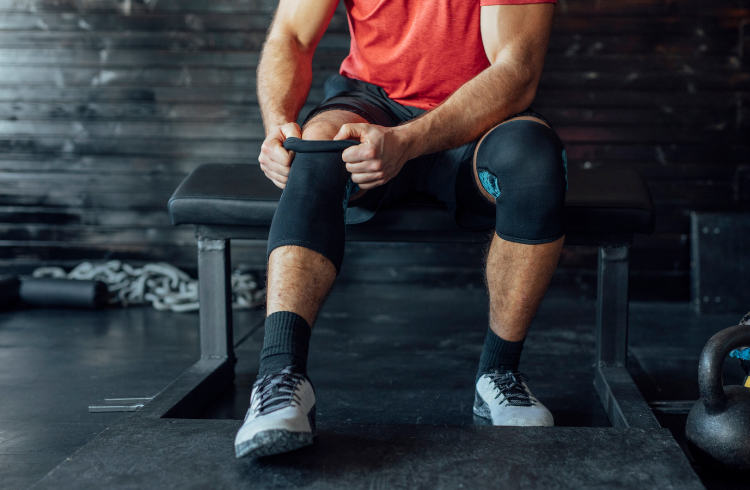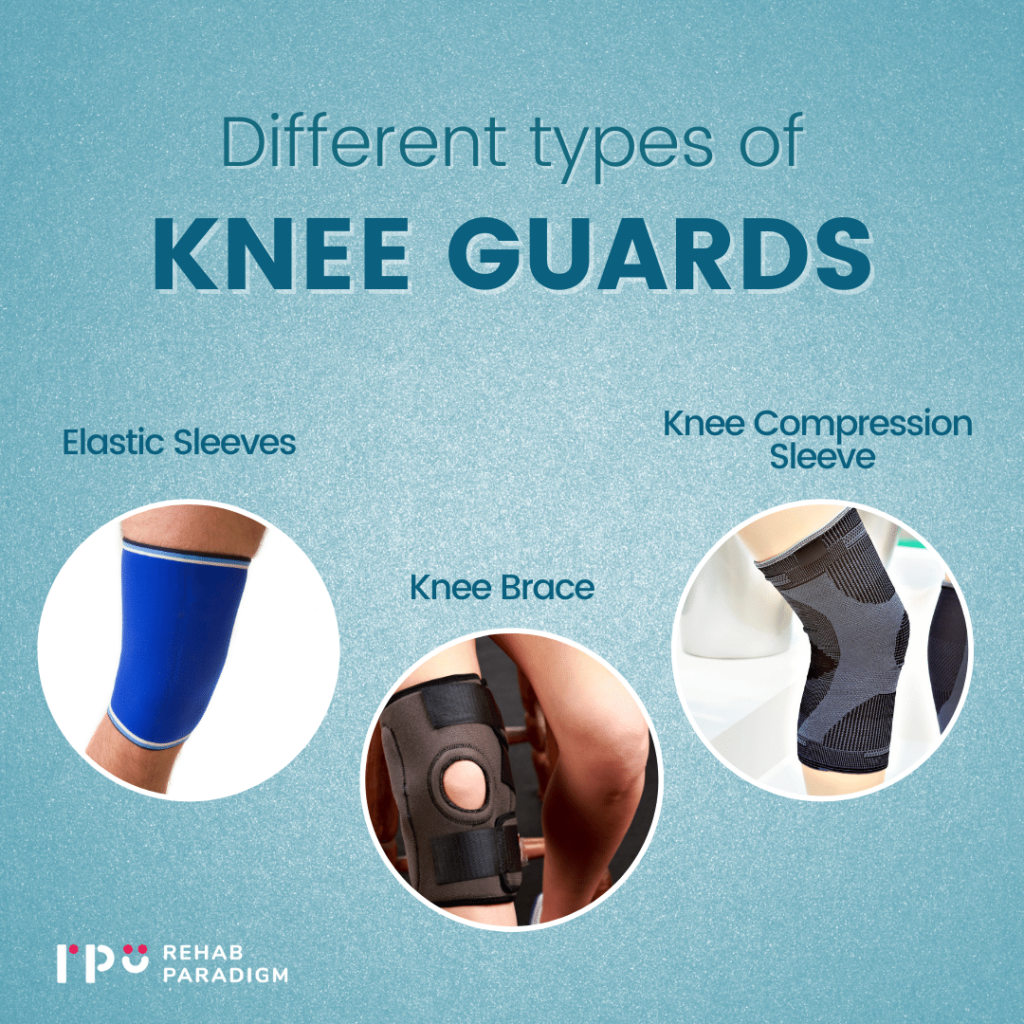
People usually think to wear knee guards when they either have knee pain or to provide knee support for fear of getting injured. Sometimes it could be a world-class athlete wearing it during competitions, and people perceive it to be a crucial factor that contributes to running better. Does a knee guard really help us run better and will it benefit everyone?
Different types of knee guards and their uses
Firstly, a knee guard offers protection or support of the knee. This is usually a solution for someone who feels knee pain such as pain under the knee cap also known as runner’s knee, or knee instability or some say ‘shakiness’. What the guard does is prevent excessive movement in the knee and its structures that may contribute to the above symptoms. For this purpose, there are several different designs, such as open patella or knee cap, which serves to achieve different objectives or target specific structures of the knee. Some may have velcro straps to accommodate different tightness and sizes, or different materials to represent different breathability or provide different levels of support.

Elastic sleeves
The most common knee guard for running is elastic sleeves that provide a more comfortable movement but still tight enough to compress and provide the knee some stability. This is often used for those with general knee pain that happens when running on uneven ground or changing directions. There is also a knee strap that is stiffer and thinner and placed at the knee-tendon, also known as the patellar tendon, which aims to offload the impact through this tendon when pounding or weight-bearing activities are performed. An example would be for someone with patellar tendon tendonitis or the inflammation of the patellar tendon, which usually occurs when the tendon is put through too high a load within a short period of time.
Some athletes may use it as a temporary measure to boost their performance and manage their knee pain through competitions, decreasing the symptoms while they still engage in high-intensity sports, or to prevent further deterioration while doing so.
Knee brace
Secondly, a different kind of knee guard more often called a knee brace, is prescribed by a doctor or medical professional to make sure that the range of motion in the knee joint is restricted. This is usually for post-operative patients or those with injuries that require the joint to not be able to twist or bend to a certain extent. The most common injury is those with ligament injuries or surgeries, such as anterior cruciate ligament (ACL) tears. A post-operative patient usually has to have an adjustable knee brace that is tightened to the individual’s knee joint, with special adjustments to restrict all knee movements with specific thresholds set by the doctor or therapist while the tissues heal and until later phases of rehabilitation when the patient’s muscles can regain its functions and control. This heavy-duty hinged brace fetches a high price as it serves greater functions with more features. The knee cap is often exposed for better movement or mobility, and comfort since the brace has to be worn for long hours including even when the patient sleeps in the early phases of recovery.
Knee Compression sleeve
Lastly, a knee guard may be used for compression, for example, to reduce swelling. This is usually to apply pressure on the swollen knee to prevent blood pooling and dissipate the fluid away from the affected area, similar to those with water retention.
Basically, what a knee guard or knee brace offers to do is to provide extra support and help our muscles, tendons, or ligaments perform their function when they have a dysfunction or decreased ability due to pain or injuries. In some cases, what it does is to give someone a confidence boost to perform a sport that may have previously caused knee pain, for injury prevention or extra support and precaution.
Which is the best one? There is no one knee guard that helps everyone since they serve different purposes.
Do we really need knee guards?
In the above-mentioned situations, knee guards do provide a good temporary solution to allow us to carry on with activities we deem important. However, prolonged usage and reliance may be counter-productive in the long run. It is similar to taking painkillers, it provides temporary relief and comfort, but it will soon wear off and still does not resolve the root of the problem.
Misconceptions
All knee pains can be eliminated or reduced by a knee guard.
Not all knee pain that happens when running is called the runner’s knee. Similarly, pain at the same region for different people may not be the same injury or have the same underlying cause. Make sure to seek help from a doctor or physical therapist to do a thorough examination to investigate the underlying cause. You may be purchasing the wrong knee guard in hope of decreasing the symptoms or becoming pain-free. More importantly, using a knee guard may help to manage symptoms temporarily but it is not a long-term solution.
Wearing a knee guard makes my knee stronger.
The knee compression by a guard makes you feel stronger because you may be able to perform at the same level with less or no pain. What is actually happening is that in the long run, it may weaken the knee as it does what your own muscles, tendons and ligaments should be doing. Long term usage will result in an over-reliance on this external support, causing our own tissues to atrophy or weaken, hence decreasing the functional capability of our knee and making us more prone to injuries without a knee guard.
What are the other alternatives?
Stop or reduce symptoms causing activities
First and foremost, it is highly recommended that you stop or reduce symptoms causing activities while getting checked on by an orthopedic doctor or a physical therapist. They are equipped with specific manual tests and clinical knowledge to investigate the cause of the pain and provide options for recovery, or recommend suitable knee guards if they find that it may be useful.
Seek professional help from physiotherapists and exercise physiologists
Physiotherapists and exercise physiologists are also trained to provide a different kind of knee support by taping. There is rigid taping, which is made of a stiff material and serves to restrict excessive movement. On the other hand, there is kinesio-taping, which is of an elastic material, which allows natural movements, yet helps to either facilitate a muscle or its movement, provide flexibility, or biases certain structures to move in a certain way.
These physical therapists can also provide a clinical exercise programme to help resolve and prevent the injury or pain from reoccurring. It usually involves movement analysis and history taking to formulate a hypothesis, then exercises are prescribed to strengthen specific muscles, encourage better movement patterns, or pre-activate muscles before the activity to more effectively execute a movement. The aim is to train our body to move efficiently with less load on our joints and prevent new or recurring injuries. Interestingly, the knee pain may not be caused by a weak knee itself, it could stem from weakness from other parts of the body, poor training programming, non-suitable footwear or simply just moving non-ideally. These factors will definitely be taken into account to formulate a recovery plan for you at Rehab Paradigm.
Physiotherapy at Rehab Paradigm
In Rehab Paradigm, we have highly skilled and experienced therapists to provide a long-term solution for your knee. We have an exercise physiologist in our team for advanced training back to function or sports performance, and occupational therapists to help you with gross and fine motor skills and in assessing your daily environment. To value-add your recovery, we also communicate with multi-disciplinary associates like doctors and dieticians when needed, to ensure a holistic treatment plan, and also use research-backed treatment modalities such as shockwave therapy and dry needling.
We believe that the many treatment approaches, expertise, and modalities, need to be individualized to patients, depending on their goals or the complexity of their condition.
If you would like to improve your health way beyond just recovery, contact us at www.rehabparadigm.com.sg or reach us at +65 8906 3290 or findus@rehabparadigm.com.sg.
